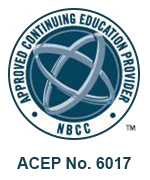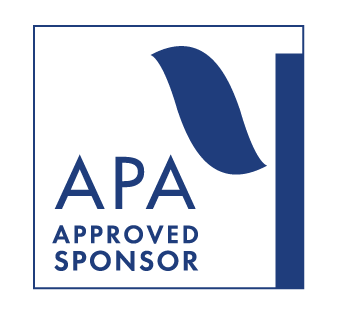October 4-6, 2019 Rockville Hilton Hotel, 1750 Rockville Pike, Rockville, MD 20852 301-468-1100
Program Chair
Karen Mohatt, PsyD & Jill Scharff, MD
General Information
Participants may register for the full three-day Weekend Conference
or for the Saturday Morning Lecture The Effect of the Internet on Sexuality and Identity
with Alessandra Lemma, presenting by live online videoconference
(lecture can be attended in person or remotely by online video from your own location)
Optional Pre-Conference Seminar:
Technology and Ethics in Training and Treatment: Best Practices
A two-session online seminar for psychotherapists and psychoanalysts
Tuesdays September 17 & 24, 7:30-8:30 p.m. ET by Zoom videoconference
This training can be combined later with ongoing coursework leading to CE credits that demonstrate the student’s participation in ongoing development of competence in technology and ethics at IPI courses.
Guest Presenters
Invited guests: Robert Gordon, PhD (Pennsylvania) and Hugh Hill, JD (Maryland)
Saturday Morning International Guest Presenter: Professor Alessandra Lemma will be presenting from the UK on Saturday morning via videoconference. Dr. Lemma is a Fellow of the British Psychoanalytical Society and Consultant Clinical Psychologist at the Anna Freud National Centre for Children and Families. She is Honorary Professor of Psychological Therapies at the School of Health and Human Sciences at Essex University and Visiting Professor, Psychoanalysis Unit, University College London where she is also the Clinical Director of the Psychological Interventions Research Centre. She is Visiting Professor, Istituto Winnicott, Sapienza University of Rome and “Centro Winnicot”, Rome. She is the Editor of the New Library of Psychoanalysis book series (Routledge) and one of the regional Editors for the International Journal of Psychoanalysis. She has published extensively on psychoanalysis, the body and trauma.
Program Faculty
Robert Gordon
PhD (Pennsylvania): Invited Guest
Hugh Hill
JD (Maryland): Invited Guest
Carl Bagnini
MSW, BCD (New York)
Nancy Bakalar
MD (Colorado)
Michelle Kwintner
PhD, LCSW-R (New York)
Karen Mohatt
PsyD (Colorado & Nebraska)
Steve Morris
PhD (Utah)
David Scharff
MD (Maryland)
Jill Scharff
MD (Maryland)
Caroline Sehon
MD (Maryland)
Lea Setton
PhD (Panama)
Janine Wanlass
PhD (Utah)
Three-Day Weekend Conference, October 4-6, 2019, Rockville, MD
|
Saturday Morning Lecture: The Effect of the Internet on Sexuality and Identity
|
Join us for a 25th Anniversary Community Dinner
Please join IPI faculty and students at a 25th Anniversary Community Dinner
Saturday October 5, 2019 at 7:00 p.m. at the Rockville Hilton Hotel
1750 Rockville Pike, Rockville, MD
Cost: $50 per person
Attire: Casual
Seating: You will have a chance to sign up for specific tables when you arrive at the conference
RSVP by purchasing your ticket(s) through the registration link below
Educational Objectives
Participants will:
ETHICS
- List two legal requirements for the best practice of teleanalysis
- Identify three indications and three contraindications for teleanalysis and teletherapy
- Describe two elements of a contingency plan to handle technology failures, emergencies or risks in the practice of teleanalysis
- Provide one clinical example of using an online platform in adherence to HIPAA privacy and security protections, confidentiality standards, and relevant laws.
- Identify one necessary step toward becoming licensed and reimbursable for teletreatment for a patient residing in anotherl state
- Describe one ethical consideration when undertaking research into the use of technology in treatment and teaching.
- Implement three elements of the ethical stance
- Examine in depth the validity of one element of the impact of the internet on sexuality and identity
- Describe one defensive and one affective-expressive use of a displacement object shown on screen in online treatment
TECHNOLOGY
- Identify two technologies that support a smart office setting
- Set two conditions for the safe transmission and discussion of process notes
- Provide one example of the use of an online platform for teaching in adherence to HIPAA privacy and security protections, confidentiality standards, and relevant laws.
- Give one example of analyzing unconscious communication projected onto the technology-mediated setting
- Provide one example of the use of an online platform for treatment in adherence to HIPAA privacy and security protections, confidentiality standards, and relevant laws.
- List two outcome measures of effectiveness in distance-mediated treatment and two outcome measures of effectiveness in teaching remotely
Continuing Education Credit Hours
Pre-Conference Seminar (ZOOM videoconference) – 2 CE credits (includes 1 ethics, 1 technology)
Full Weekend Conference (in person) – 13.5 CE credits (includes 4 ethics, 4.5 technology)
Saturday Morning Lecture & Discussion (in person) – 2.5 CE credits (includes 1.5 technology)
Saturday Morning Lecture (online) – 1.5 technology CE credits
Registration
Register for any/all of the following by clicking here
Pre-Conference Seminar (ZOOM videoconference) – $60
Full Weekend Conference (in person) – $517 (discounts for members/early registration)
Saturday Morning Lecture & Discussion (in person) – $25
Saturday Morning Lecture (online) – $25
25th Anniversary Community Dinner – $50
Make an Anniversary Donation here
Affective Learning and the Small Group
The Affective Learning Model is an educational format derived from the theoretical principles of Object Relations. Faculty, candidates, fellows, students and weekend attendees learn together, from didactic material and experience, to integrate theory and technique, cognitive and affective elements, and intrapsychic and interpersonal dimensions.
IPI’s affective learning groups represent a core component of the weekend learning. Each participant meets in a consistent group, twice daily and once on Sunday morning during the weekend conference. The affective learning process provides an essential vehicle for learning at IPI, giving participants an effective way to integrate their intellectual and emotional responses to the material at individual and group levels, and to apply this learning to their clinical work. Participants value the small group as a place that fosters their development as clinicians, by giving the learner a close-in opportunity to discuss, argue, and wrestle with concepts and emotional responses to the material.
Continuing Education Information
The International Psychotherapy Institute, IPI, is approved by The American Psychological Association to sponsor continuing education for psychologists. IPI maintains responsibility for the program and its content. The International Psychotherapy Institute has been approved by NBCC as an Approved Continuing Education Provider, ACEP No. 6017. Programs that do not qualify for NBCC credit are clearly identified. The International Psychotherapy Institute is responsible for all aspects of the programs. The International Psychotherapy Institute is authorized by the Board of Social Work Examiners in Maryland to sponsor social work continuing education learning activities and maintains full responsibility for this program. This training qualifies for Category I continuing education units. The International Psychotherapy Institute is recognized by the New York State Education Department’s State Board for Social Work as an approved provider of continuing education for licensed social workers #SW-0299.
Participants are responsible for verifying that IPI CE credit is accepted by the licensing boards in their own states.



